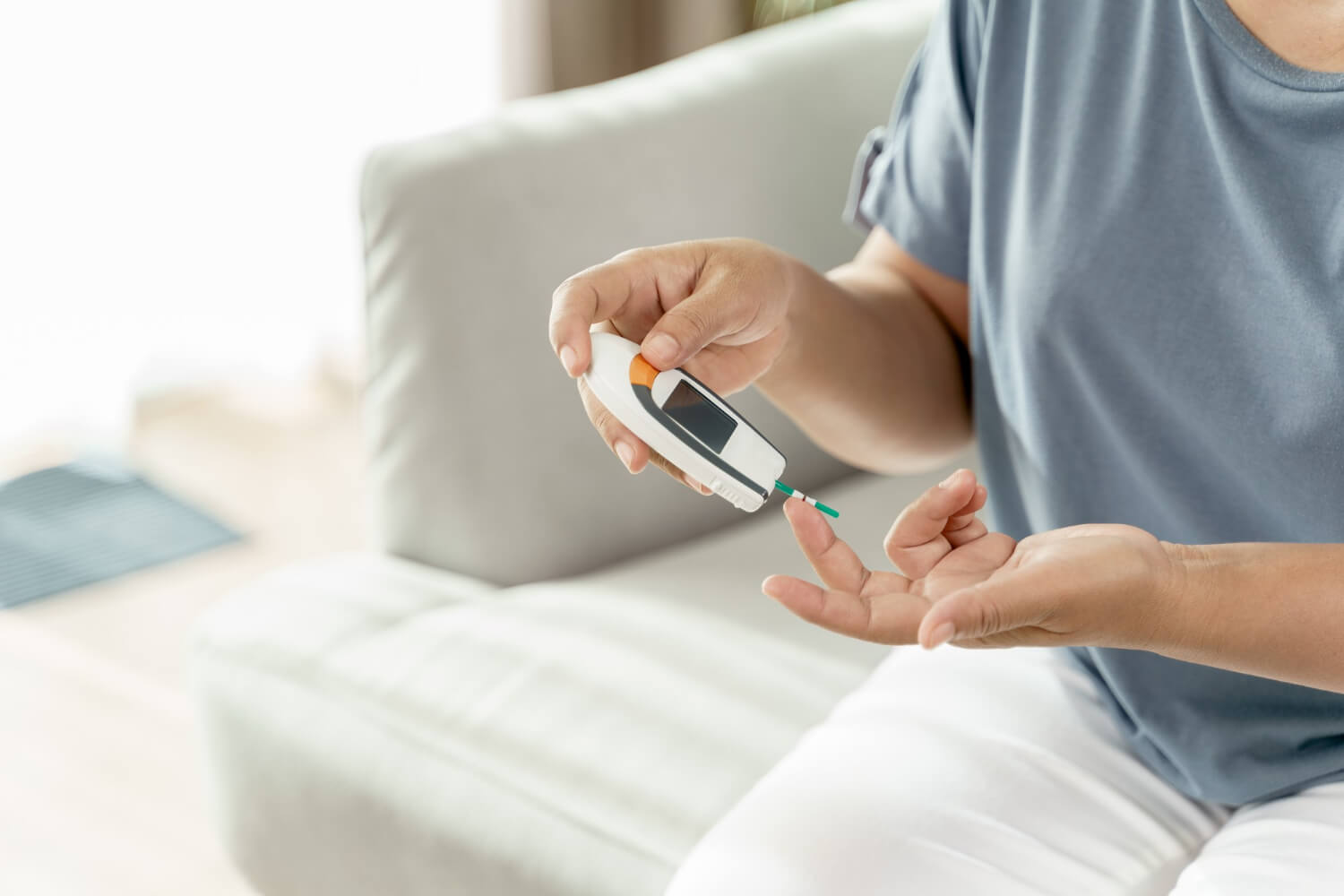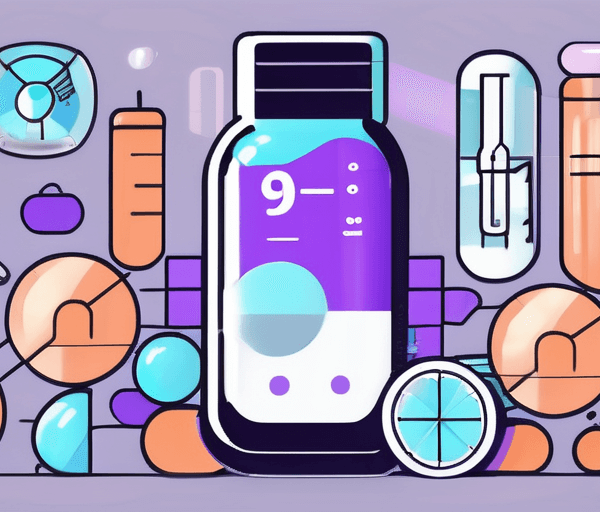When it comes to managing high blood sugar level, it is crucial to be knowledgeable about diabetes. It is a must, especially with women patients as it can involve other complications that needs special attention. That’s why recognizing the signs of diabetes in women should be the priority of every diabetic women patients.
Uncover these warning signs and be one step ahead towards overall wellness. Let’s begin the discussion below!
Understanding Diabetes: An Overview
Diabetes is a chronic condition that affects millions of people worldwide. It occurs when the body is unable to regulate blood sugar levels effectively. This can happen due to two main reasons: either the body doesn’t produce enough insulin, a hormone that helps sugar enter the cells, or the body doesn’t use insulin properly. Without proper management, diabetes can lead to serious complications, including heart disease, kidney problems, and nerve damage.

What is Diabetes?
This metabolic disorder characterized by high levels of glucose in the blood. Glucose, also known as blood sugar, is our main source of energy. It comes from the food we eat and is transported into the cells with the help of insulin. In diabetes, either the pancreas doesn’t produce enough insulin (Type 1 diabetes) or the body becomes resistant to the insulin produced (Type 2 diabetes).
When someone has diabetes, their body struggles to maintain normal blood sugar levels. This can lead to a variety of symptoms, including frequent urination, excessive thirst, unexplained weight loss, fatigue, and blurred vision. If left untreated, diabetes can have serious consequences on a person’s health and well-being.
Types of Diabetes
There are several types of diabetes, but the most common ones are Type 1 and Type 2 diabetes. Type 1 diabetes usually starts during childhood or adolescence and requires lifelong insulin therapy. It is estimated that about 5-10% of people with diabetes have Type 1 diabetes. This type of diabetes is not preventable and is not caused by lifestyle factors.
Type 2 diabetes, on the other hand, is more common and accounts for about 90-95% of all diabetes cases. It is often associated with lifestyle factors such as obesity, sedentary behavior, and poor diet. However, genetics also play a role in the development of Type 2 diabetes, and some individuals may be more predisposed to the condition than others.
In addition to Type 1 and Type 2 diabetes, there are other less common types of diabetes, such as gestational diabetes, which occurs during pregnancy, and monogenic diabetes, which is caused by a mutation in a single gene. These types of diabetes have their own unique characteristics and treatment approaches.
It is important to note that diabetes is a complex condition that requires ongoing management and care. Regular monitoring of blood sugar levels, following a healthy diet, engaging in regular physical activity, and taking prescribed medications are all essential components of diabetes management. Additionally, diabetes education and support from healthcare professionals can help individuals with diabetes navigate the challenges of living with this condition.
The Importance of Early Detection

Early detection of diabetes is crucial for effective management and prevention of complications. Unfortunately, many people overlook the early signs of diabetes in women, attributing them to other factors or dismissing them as minor issues. However, delaying diagnosis can have severe consequences.
Benefits of Early Detection
Early diagnosis provides an opportunity to educate patients about the importance of regular monitoring, proper medication use, and proactive healthcare management. By understanding the impact of diabetes on their health and taking an active role in their treatment, individuals can better manage their condition and reduce the risk of complications.
Furthermore, patients can receive proper care from healthcare providers with the help of early diagnosis. These experts can prescribe appropriate medications to help manage blood sugar levels. In addition to that, they can also recommend regular follow-up appointments for better monitoring and ensure the treatment plan is effective and adjusted as needed.
Recognizing Early Signs of Diabetes in Women

While the symptoms of diabetes can vary between individuals, there are ten early signs of diabetes in women that people should be aware of.
Let’s discuss each below!
Unusual Fatigue and Irritability
Feeling tired and irritable can be a sign of diabetes. When the body doesn’t effectively use glucose for energy, it can lead to fatigue and mood changes. If you find yourself feeling exhausted or moody frequently, it’s worth considering a diabetes screening.
Additionally, diabetes-related fatigue can affect daily activities and overall quality of life. It’s important to address this symptom to ensure optimal well-being.
Frequent Urination and Excessive Thirst
On the other hand, excessive thirst and frequent urination are classic symptoms of diabetes. When blood sugar levels are high, the kidneys work to eliminate the excess glucose through urine. This can result in increased urination and a constant feeling of thirst. If you notice a sudden increase in how often you urinate or find yourself constantly reaching for water, it’s time to consult your healthcare provider.
Excessive thirst can be disruptive and affect daily routines. It’s important to address this symptom to maintain hydration and prevent potential complications.
Unexplained Weight Loss
Weight loss can occur in diabetes due to several factors. When the body can’t use glucose properly, it starts breaking down fat and muscle for energy, leading to weight loss. Additionally, frequent urination can cause dehydration and loss of calories, contributing to weight loss. If you’re experiencing unexplained weight loss despite maintaining your usual diet, diabetes could be a possible explanation.
The sudden change in weight can be concerning and may indicate an underlying health issue. It’s crucial to investigate further with a healthcare professional to determine the cause and ensure appropriate management.
Persistent Hunger Even After Eating
A constant feeling of hunger, even after eating, can be a sign of diabetes. When insulin is ineffective, the glucose doesn’t enter the cells, resulting in a lack of energy and persistent hunger. If you find yourself always craving food or experiencing extreme hunger shortly after a meal, it’s essential to investigate further with a healthcare professional.
This behavior can be distressing and impact overall well-being. Addressing this symptom is important for maintaining a balanced diet and managing blood sugar levels effectively.
Slow Healing of Wounds
Diabetes can impair the body’s ability to heal wounds. High blood sugar levels can damage blood vessels and reduce blood flow to the affected area, making it harder for wounds to heal. If you notice that cuts, bruises, or sores take longer than usual to heal, it’s crucial to speak with your doctor.
Delayed wound healing can lead to complications and increase the risk of infections. Timely intervention is necessary to promote healing and prevent further health issues.
Frequent Infections
Meanwhile, suffering from diabetes weakens the immune system. Thus, making individuals more susceptible to infections. High blood sugar levels provide an ideal environment for bacteria and fungi to grow.
Women with undiagnosed diabetes may experience frequent urinary tract infections, yeast infections, or vaginal infections. If you notice a recurring pattern of infections, it’s essential to consider diabetes as a possible underlying cause.
Blurred Vision
Elevated blood sugar levels can cause temporary changes in the shape of the eye lens, leading to blurry vision. If your vision suddenly becomes blurry or fluctuates, particularly after meals or periods of high blood sugar, it’s important to have your eyes checked and also consider diabetes as a potential cause.
Changes in vision can affect daily activities and reduce quality of life. It’s crucial to address this symptom promptly to maintain optimal eye health and prevent vision impairment.
Tingling or Numbness in Hands or Feet
Diabetes can damage nerves over time, leading to peripheral neuropathy. This condition often manifests as tingling or numbness in the hands, feet, or legs. If you experience these sensations regularly, it’s crucial to discuss them with your healthcare provider.
Tingling or numbness can be uncomfortable and affect mobility. Addressing this symptom is important for managing neuropathy and preventing further nerve damage.
Darkened Skin in Certain Areas
Another warning sign includes darkened skin patches, especially around the neck, armpits, and groin. This condition, known as acanthosis nigricans, is associated with insulin resistance. If you notice these changes in your skin coloration, it’s advisable to consult a healthcare professional.
Changes in skin coloration can be concerning and may indicate an underlying health issue. It’s important to investigate further to determine the cause and ensure appropriate management.
Polycystic Ovary Syndrome (PCOS) and Diabetes
Polycystic ovary syndrome (PCOS) is a hormonal disorder that affects many women. It is characterized by irregular menstrual cycles, excessive hair growth, and ovarian cysts. PCOS is also closely linked to insulin resistance and an increased risk of developing Type 2 diabetes. If you have PCOS, it’s crucial to be vigilant about monitoring your blood sugar levels and managing your overall health.
PCOS can have various impacts on women’s health and well-being. Regular monitoring and management are essential to prevent complications and maintain optimal health.
Final Takeaway
Awareness on the early signs of diabetes in women is essential, as they may face higher risks compared to men. If you experience any of these symptoms, it’s important not to ignore them and seek medical advice promptly.
Remember, early detection and timely intervention can make a significant difference in effectively managing diabetes and preventing its complications. Book an online consultation with a diabetologist for immediate intervention.



